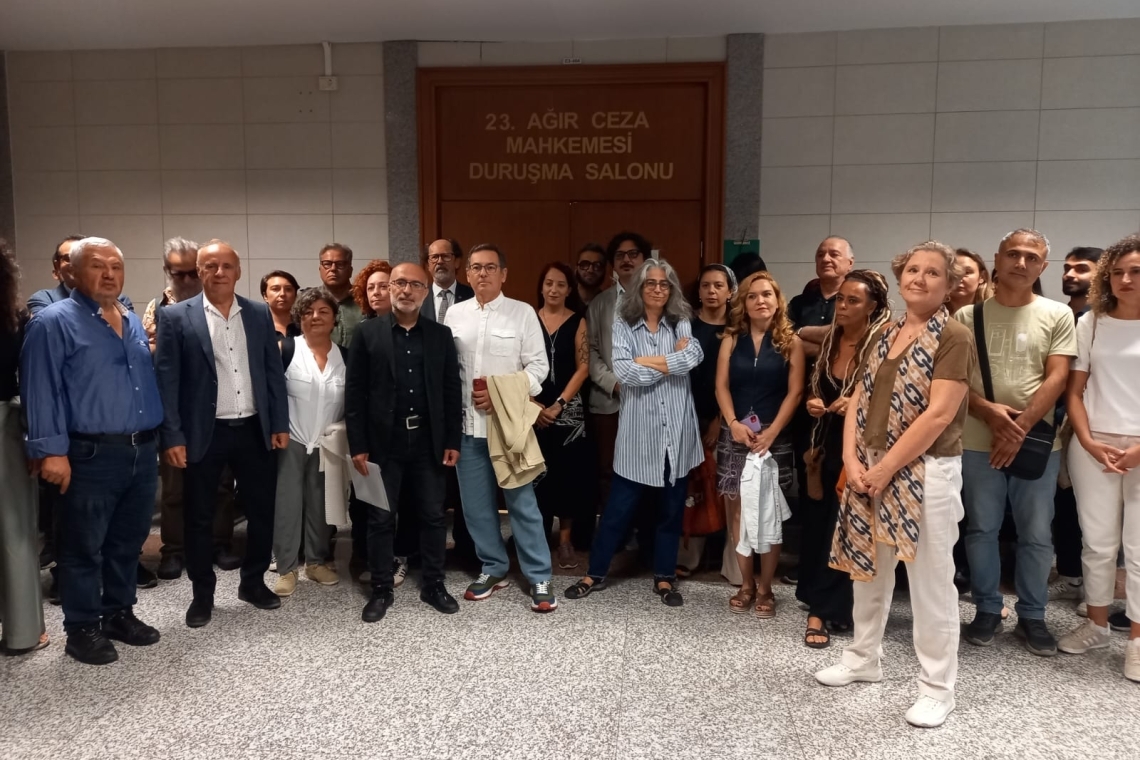h
Author Yavuz Ekinci faces trial over 2014 novel, denies charges of ‘terror propaganda’
Author Yavuz Ekinci appeared in court to defend his 2014 novel Rüyası Bölünenler ("Those Whose Dream Was Interrupted"), which led to accusations of "making terrorist propaganda." The first hearing of the trial was held at the Istanbul 23rd High Criminal Court. Ekinci rejected the charges, stating in his defense that the novel is a fictional work and a reflection of the region's history.
The case was opened following a March 2023 ruling by the Istanbul 7th Criminal Judgeship of Peace, which banned the printing, distribution, and sale of the book and ordered all copies to be confiscated. Ekinci's trial drew support from notable figures in the literary community, including the Secretary General of the Turkish Writers' Union, PEN Norway representatives, and other prominent writers.
'My novel tells the story of an endless wait'
Ekinci began his defense by rejecting the accusation of "terror propaganda" and expressing disappointment at being prosecuted for a work of fiction. "I’m deeply saddened as a writer that my novel, Rüyası Bölünenler, a fictional work, is being treated as a crime in a country that claims to uphold the rule of law," he said.
Ekinci also recounted the strange circumstances surrounding the case, explaining that the novel was reported to Turkey’s Presidential Communications Center (CİMER) just days after the devastating February 2023 earthquakes. "Thousands were trapped under rubble in Hatay, Maraş, Antep, and Malatya, yet someone took the time on the night of February 7 to accuse me of ‘terror propaganda’ via CİMER. It’s unimaginable."
The author described his book as a tale of waiting and longing for loved ones, "It is the story of those who wait by the window, eyes on the road, or sit in front of the TV hoping for news of their sons, daughters, or fathers. It’s a story of an endless wait." He urged the court to consider his work under the framework of freedom of thought and expression, as outlined by the Turkish Constitution and the European Court of Human Rights, and asked for his acquittal.
‘The statute of limitations has expired’
Ekinci’s lawyer, Can Ekinci, argued that the statute of limitations for filing charges had passed. "The date of the alleged crime is listed as the date the complaint was made to CİMER, but that cannot be considered the date of the offense. The novel was published in 2014, and 10 years have passed. According to Article 26 of the Press Law, the deadline for filing a case is six months, which has long expired," he said, requesting the case be dismissed.
He also highlighted that the book had been translated into other languages and published internationally, adding that it was a story about the life of a fictional character, not terrorist propaganda. The defense requested that the identity of the person who made the complaint to CİMER be determined and called to testify in court.
The prosecutor requested time to address gaps in the case file. Following a recess, the court rejected the defense's requests, deciding to inquire with the Istanbul Security Branch about the book's publication date and to forward the file to the prosecution to prepare the final opinion. The next hearing is scheduled for December 9.



